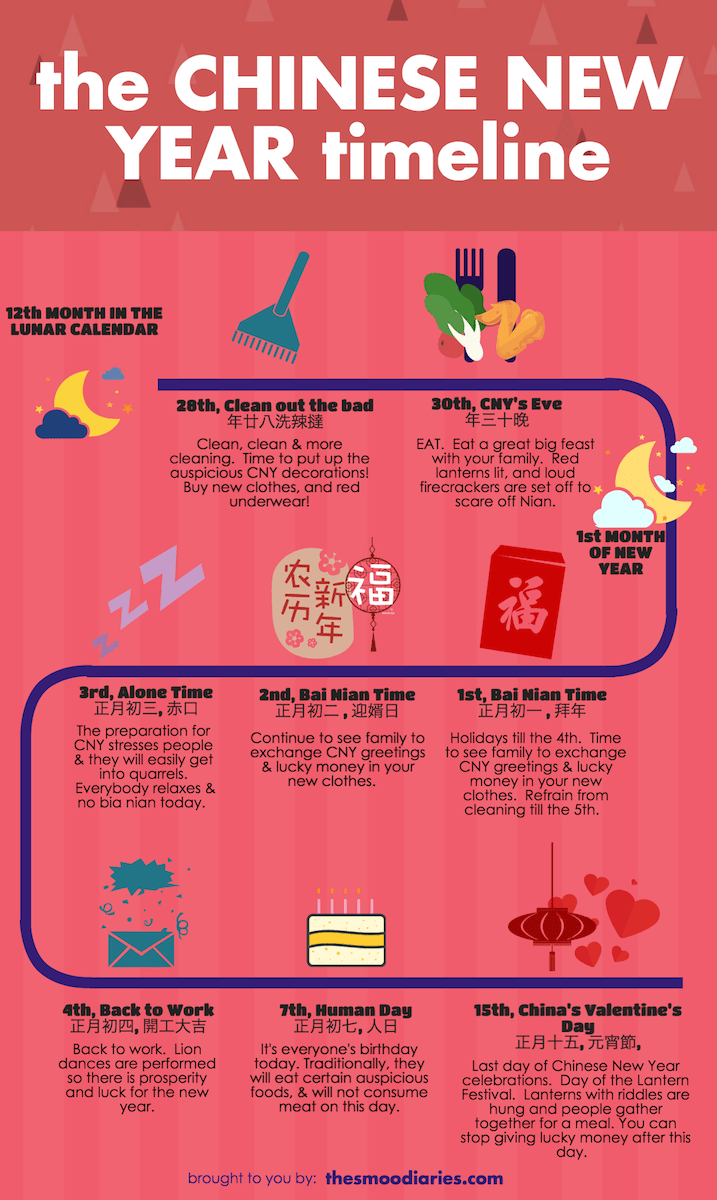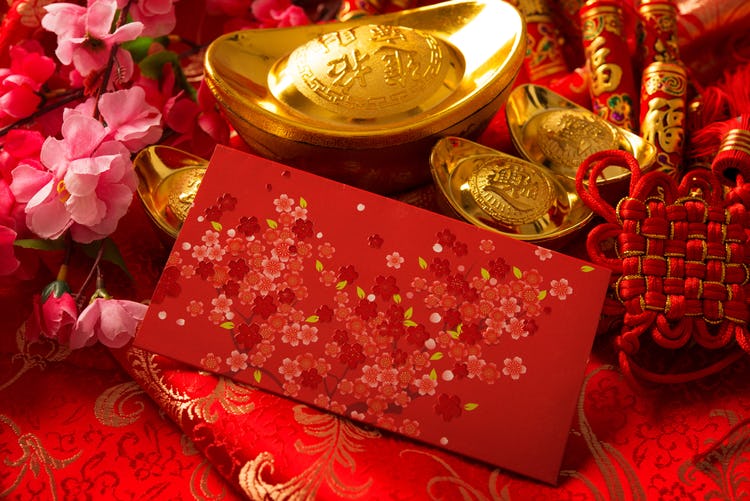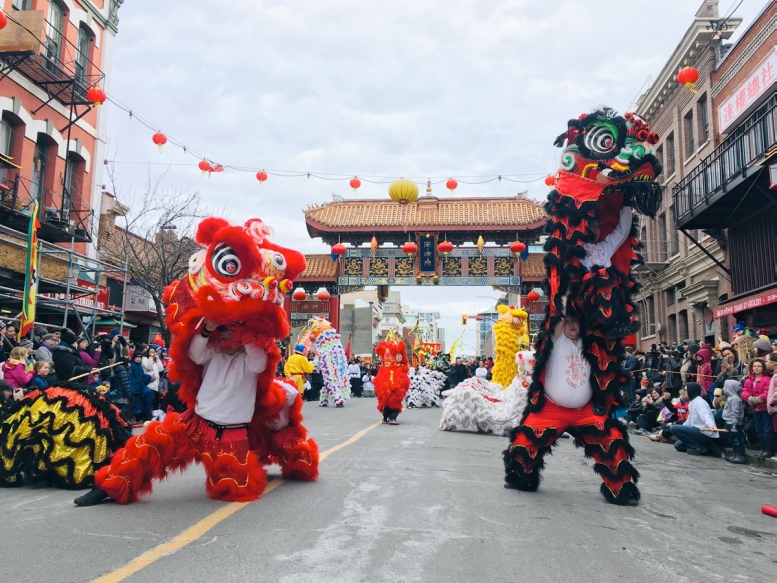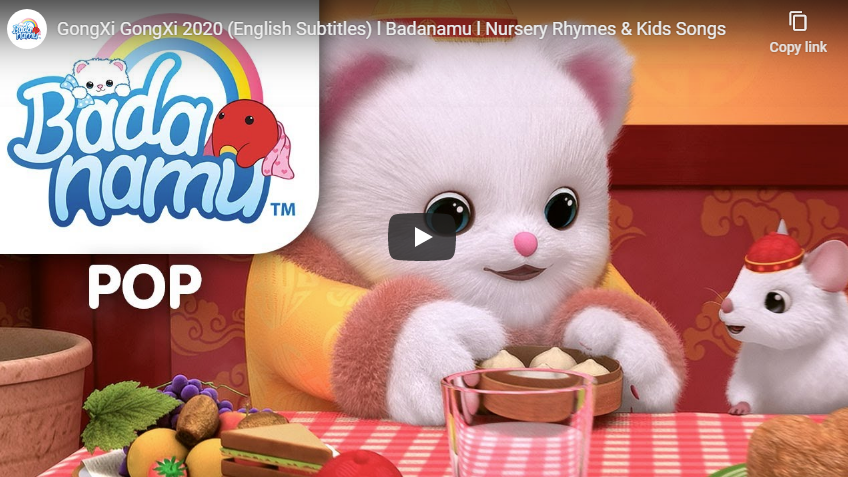Posted by Mindy Tulsi-Ingram on 13th Jan 2020
Chinese New Year
After all the holidays in December and New Year, everyone is ready to take a break and relax at home. But not so soon! It’s time to celebrate Chinese New Year. If you have ever been to a Chinese New Year festival, you know that there’s plenty of drum-roll and gongs. Also known as “Spring Festival”, Chinese New Year celebration is about new beginnings and fresh starts. Because Chinese New Year’s date is set according to the Lunar calendar, it falls on a different date each year. The New Year is also celebrated in countries other than China; hence the term Lunar New Year. It’s the coldest time of the year and what better way to spend it than gathering around the table with family and indulge in a feast!

Families prepare for Chinese New Year festivities several days before the big day arrives by cleaning up their houses to get rid of all the bad luck from the past year and bring in good luck for the upcoming year. On Chinese New Year's Eve, families get together for a year-end dinner. Some families stay up until midnight to welcome the New Year. In some parts of China, you will still hear those firecrackers blasting away when the midnight bell rings. Firecrackers are lit to scare away the mythical creature Nián, who feast on animals and humans on New Year’s Eve. But since firecrackers are banned in most cities, balloons are now popped to replicate the loud noise.

Elders and married members in the family will hand out red pockets to children during Chinese New Year. Inside the red pockets is money representing luck and blessings passed on from the elders to children. If you ever received one of those, remember to hold it with both hands and say thank you properly. Do not open it right away as it’s very impolite to do so. And if you were to hand them out, remember to avoid monetary value of 4’s, as its pronunciation resembles “death” in Chinese.

Chinese New Year celebration is about family gatherings and paying respect to the ancestors and Gods. It is a week-long, for some, even month-long celebration. On New Year’s Day. you are not allowed to shower, sweep and bring out the garbage as these actions will “wash” away all the luck for the coming year. And during the first two weeks of the New Year, avoid wearing blue, black and white clothes as these colors symbolize death in the Chinese culture. Instead, wear bright and cheery color for luck and happiness. To ensure your luck for the coming year, do not cut your hair during this month, as it will cut your luck. Try not to take any unnecessary medications as medication means illness will persist during the year. Do not use words that are unlucky and related to death and illness. Be patient with your loved ones and even strangers to avoid arguments. And if you ever break something during Chinese New Year, do not panic! Just say some lucky phrases afterwards to counter the bad luck of breaking things!

Families often pay visits to each other’s houses during Chinese New Year and it is proper manner to bring a gift when visiting someone. Usually the gifts are food-related items as it means you are sharing your prosperity with the receivers. Snacks, liquor, tea and fruits are all good choices. Fruits such as apple and oranges are favored as they represent safety and fortune, whereas pear is a no-no as its pronunciation is close to “separation” in Chinese. It’s also nice to bring flowers but be sure to avoid Chrysanthemum or other white flowers as these are associated with mourning ceremonies. Orchids and Narcissus are great as they symbolizes fertility and prosperity. Wrap your presents in red or other bright colors and never in white or black. And always remember to remove the price tags. Do not gift sharp objects such as knives and scissors as it means cutting ties. Most important of all, do not ever gift a clock as it means funeral rituals.

Afterall, Chinese New Year celebration is all about luck and joy. So be happy during the festivities and enjoy all the great food. If you can’t remember any of the above, just be sure to remember “gong hei fat choy” / “gong xi fa cai” which translate to wishing you great happiness and prosperity,” and “san nihn faai lohk” / “xīn nián kuài lè” which means Happy New Year!


